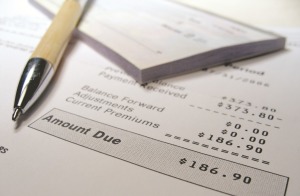Routines are a good thing. When something is routine for you it almost runs on automatic pilot. You don’t have to expend the energy to remember it. It just happens. I brush my teeth before bed. I feed my cats first thing when I get up in the morning. I set up the coffeemaker for the next day right after I wash the dinner dishes. I don’t think about these things. I just do it because it’s routine.
This semester I’ve found myself needing to establish new routines. And that’s not always easy. I have to remember to grab a mask before I leave the house. I have a new travel mug that I’m using for my morning coffee (because it allows me to use a straw I can slip under my mask) and I haven’t adjusted to exactly how much to fill it so it doesn’t splash over when I put the lid on. I’m getting used to being back in the office after working from home for an extended period which is good (my computer monitors are so BIG!) and bad (traffic in State College isn’t horrible, but it’s much worse than the commute from my living room to my guest room) and good (I get to see STUDENTS!!!) and bad (with the combination of my glasses, my mask, and my headphones for Zooming, I feel like I’m wearing a motorcycle helmet all day).
Experts say that it takes 66 days to develop a habit. That’s the magic point at which your routine goes on autopilot. Which explains why I’m struggling with returning to the office after working at home for 17 months. My work from home routine was on autopilot. And it’s not easy to build new routines. You need to focus on doing the same thing at the same time on a regular basis (whether that’s daily or weekly or monthly).
You are likely also working on establishing new routines. A new class schedule. A new commute. And quite possibly a new way of managing your money. All of these things are much easier to manage once they are routine. So how do you make managing your money routine? Last week we talked about putting your “monthly paycheck” on auto-transfer. That’s the first step. But you can also set up a lot of your bills for auto-transfer. And any bills that are not on auto-transfer you should establish a routine for when you pay them. I always sit down with a pile of bills at the start of every month, right after I get paid. I schedule all the payments with my bank’s online bill paying system, and then I’m done for the month. Autopilot. And I do the same with savings. I have auto-transfers set up to move money into my emergency fund and my long-term investment account at the beginning of the month. And my retirement savings comes right out of my paycheck before I even see the money—it doesn’t get more automatic than that! And my final money routine is to check my recent transactions every morning when I sit down at the computer. I subscribe to a service that imports all of the transactions on my different accounts into a Google spreadsheet, which allows me to better track where my money is going. The daily sorting and categorizing of these transactions helps me to manage my budget and alerts me to anything that may be out of the ordinary (hopefully “What did my husband buy at the music store now?” rather than “My credit card has been hacked!”).
While you are working on establishing your new routines, make the extra effort to put your money on autopilot too. It really can remove a great deal of stress from your life not to need to think about it!

